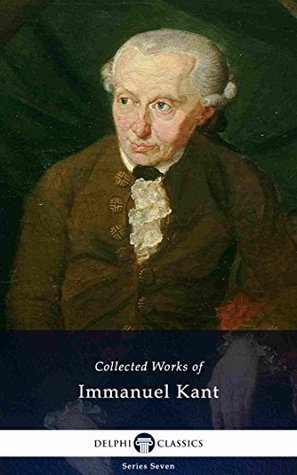More on this book
Community
Kindle Notes & Highlights
There is therefore for beautiful art only a manner (modus), not a method of teaching (methodus).
If, on the contrary, we supply to nature causes acting designedly, and consequently place at its basis teleology, not merely as a regulative principle for the mere judging of phenomena, to which nature can be thought as subject in its particular laws, but as a constitutive principle of the derivation of its products from their causes; then would the concept of a natural purpose no longer belong to the reflective but to the determinant Judgement.
We are accustomed to speak of the above-mentioned properties of geometrical figures or of numbers as beautiful, on account of a certain a priori purposiveness they have for all kinds of cognitive uses, this purposiveness being quite unexpected on account of the simplicity of the construction.
In order to see that a thing is only possible as a purpose, that is, to be forced to seek the causality of its origin not in the mechanism of nature but in a cause whose faculty of action is determined through concepts, it is requisite that its form be not possible according to mere natural laws, i.e. laws which can be cognised by us through the Understanding alone when applied to objects of Sense; but that even the empirical knowledge of it as regards its cause and effect presupposes concepts of Reason.
An organised being is then not a mere machine, for that has merely moving power, but it possesses in itself formative power of a self-propagating kind which it communicates to its materials though they have it not of themselves; it organises them, in fact, and this cannot be explained by the mere mechanical faculty of motion.
This principle, which is at the same time a definition, is as follows: An organised product of nature is one in which every part is reciprocally purpose, [end] and means. In it nothing is vain, without purpose, or to be ascribed to a blind mechanism of nature.
the fundamental proposition of the universal science of nature, that nothing happens by chance.
Also the beauty of nature, i.e. its connexion with the free play of our cognitive faculties in apprehending and judging of its appearance, can be regarded as a kind of objective purposiveness of nature in its whole [content] as a system of which man is a member; if once the teleological judging of the same by means of the natural purposes which organised beings suggest to us, has justified for us the Idea of a great system of purposes of nature. We can regard it as a favour110* which nature has felt for us, that in addition to what is useful it has so profusely dispensed beauty and charm; and
...more
from a wise author of the world.
The determinant Judgement has for itself no principles which are the foundation of concepts of Objects. It has no autonomy, for it subsumes only under given laws or concepts as principles.
Proposition: All production of material things is possible according to merely mechanical laws. Counter-proposition: Some production of material things is not possible according to merely mechanical laws.
Of the


